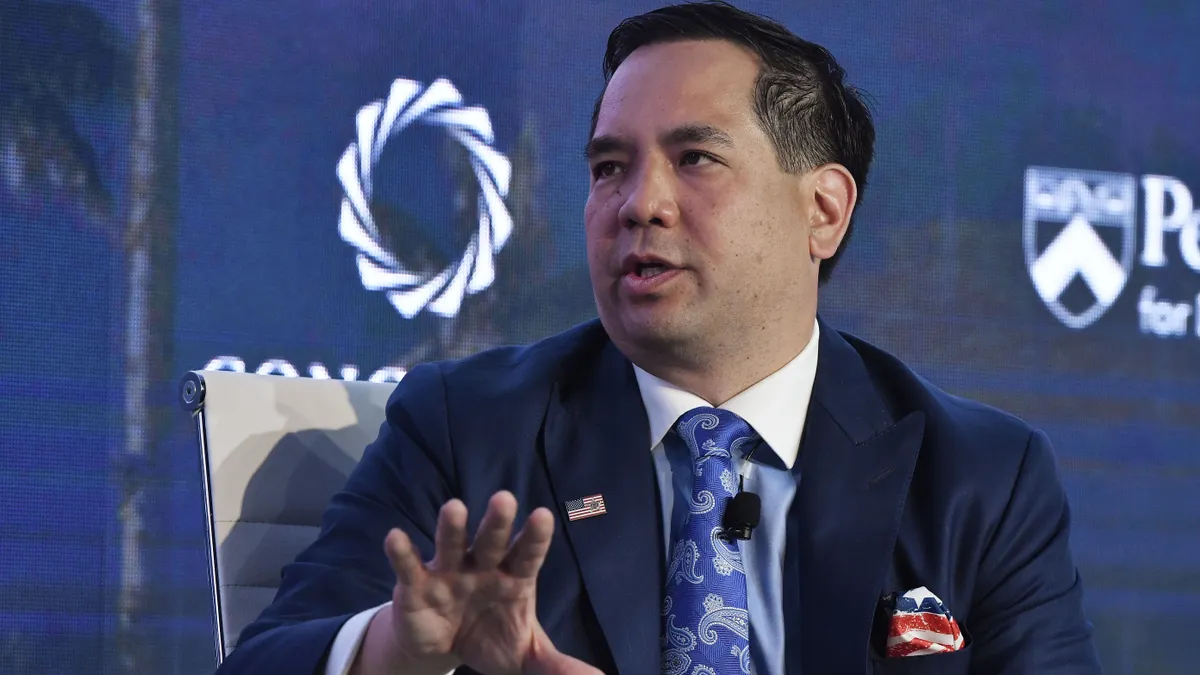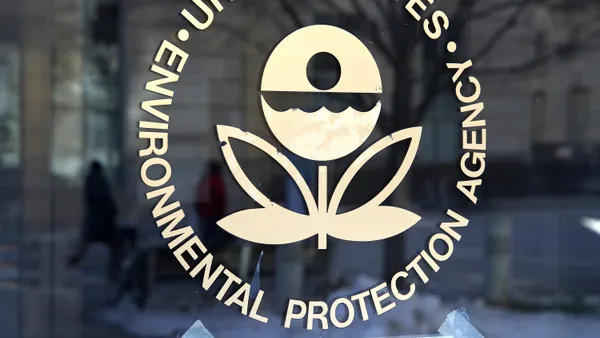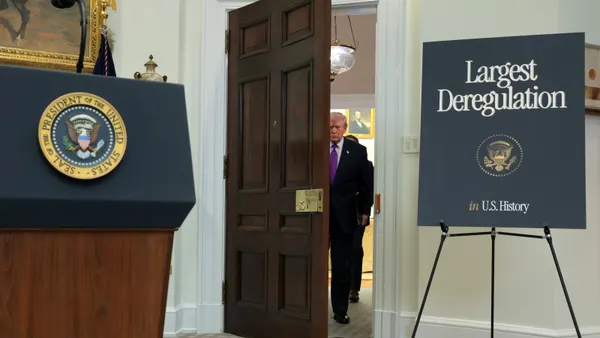Dive Brief:
- Twenty-six Republican state attorneys general last week appealed a federal judge’s decision that declined to block a Labor Department rule permitting employee retirement plans to consider ESG factors when making investments. The rule took effect in January.
- The appeal, led by Utah and Texas attorneys general Sean Reyes and Ken Paxton, was filed in Amarillo, Texas, Oct. 26 after a federal district court judge dismissed the lawsuit in September. The coalition alleges the Biden administration’s rule exceeds the authority granted to it by the Employment Retirement Income Security Act of 1974.
- The continuation of the lawsuit points to a rapidly evolving battleground in the political fight against ESG, which is already impacting the sustainable fund market.
Dive Insight:
In their original complaint, the attorneys general argued the Labor Department’s “Prudence and Loyalty in Selecting Plan Investments and Exercising Shareholder Rights” rule exceeds its statutory authority. U.S. District Court Judge Matthew Kacsmaryk dismissed the complaint, stating the rule neither runs afoul of ERISA nor is it “arbitrary and capricious,” as the coalition also alleged. Kacsmaryk’s ruling also cited the Chevron doctrine, a principle that sets forth a legal test for when U.S. federal courts should defer to an agency’s interpretation of a federal statute if the language is ambiguous or unclear.
Utah and Texas are joined in the appeal by attorneys general from Alabama, Alaska, Arkansas, Florida, Georgia, Idaho, Indiana, Iowa, Kansas, Kentucky, Louisiana, Mississippi, Missouri, Montana, Nebraska, New Hampshire, Oklahoma, Ohio, South Carolina, North Dakota, Tennessee, Virginia, West Virginia and Wyoming. All 26 states were parties in the original suit.
Reyes said the group was willing to fight the case up to the U.S. Supreme Court, where the attorneys may hope to find similar minds among the conservative-leaning bench, according to a release announcing the appeal.
“Permitting asset managers to direct retirement funds from hard-working Americans into ESG investments puts trillions of dollars at risk in exchange for a radical climate agenda,” Reyes said. “Our citizens deserve real fiduciaries who manage funds to maximize value, not gamble with them for political gain.”
The Labor Department finalized the rule earlier this year after going through more than 900 comments and 20,000 petitions and made substantial edits to its sections regarding ESG. The final rule emphasized that while the rule permits fund managers to consider ESG and climate change effects when making decisions, the department was not looking to push managers to make ESG investments.
The department’s decision to alter the rule’s language from saying risks “may often require” to “may include” consideration of environmental, social, and governance factors was cited by Kacsmaryk as a reason the rule is lawful. Kacsmaryk also said the Labor Department’s explicit clarifications that the rule wasn’t intended to mandate climate change and ESG consideration contributed to his interpretive deference to the Labor Department under the Chevron principle.
The Labor Department said the “principles-based approach” it took to including ESG consideration in the final rule will help ease the “chilling effect” created by a 2020 agency rule “without explicitly favoring climate change and other ESG factors.”
“The proposed language [for the rule] was not intended to create an effective or de facto regulatory mandate,” the final rule says. “Nor was the language intended to create an overarching regulatory bias in favor of ESG strategies.”
Given the group’s stated intent to fight the rule all the way to the nation’s highest court, if necessary, Kacsmaryk’s citation of the Chevron doctrine could prove noteworthy in the appeals process. The court will consider a case challenging the principle on its upcoming docket, in Loper Bright Enterprises Inc. v. Raimondo, where Secretary of Commerce Gina Raimondo is the named defendant. Several members of the court’s conservative majority, such as Justices Clarence Thomas and Neil Gorsuch, have already been vocal critics about the doctrine in recent years.
The court’s deference to agency interpretations of statutes was established by a 1984 Supreme Court ruling in Chevron v. Natural Resources Defense Council. An elimination of the principle would restrict how agencies implement laws with ambiguous clauses.













